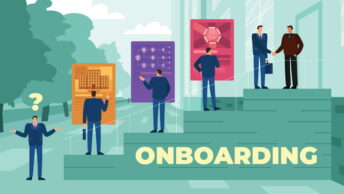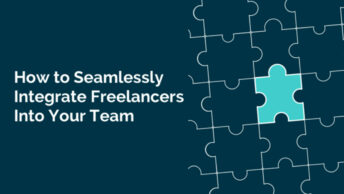Over the last 10 years, the product management role has stepped into the limelight and gained traction as a profession. But what exactly is a product manager and what do they do?
Kevin Lee, Founder of Product Manager HQ and Venture Investor at Pear VC, gave us this definition: “A product manager helps to guide a team in discovering and developing the right product for users.”
Product managers are considered to be the linchpin that holds product teams together. They take ownership for the success or failure of the product development process. Managing the product and filling the product management role is of great importance, especially for early-stage startups that are trying to scale beyond Product Market Fit (PMF).
In scaling a product, and building a team post-PMF, founders will face some of the following product challenges and vital transitions:
- Being the product manager
- Deciding when to hire a product manager
- How to hire a product manager
- Giving authority to a product manager
To understand how the PM role takes shape at a startup, we first need to understand the core functions and responsibilities of a product manager. In an exclusive interview with Arc’s Codementor brand, Kevin Lee offered some insights on how startup founders can approach the product management role.
Looking for top talent fast? See how Arc can help you:
⚡️ Find developers, designers, marketers, and more
⚡️ Freelance or full-time remote + fully vetted
⚡️ Save up to 80% with global hires
Hire top talent with Arc risk-free →
Defining The Product Management Role
First, let’s look at what a product manager is not.
What a PM Is Not
A PM is not the CEO of anything. Popularized in an old blog post by Ben Horowitz, the phrase “a product manager is the CEO of the product” has been tossed around quite a bit. Are PMs really like the CEO? Kevin doesn’t believe so.
During our chat, Kevin pointed out that, ultimately, the buck stops with the CEO. The CEO is responsible to investors and for the success or failure of the company. “The CEO has extreme ownership,” says Kevin.
Here are a few more ways a PM differs from a CEO:
- A PM is not directly managing anyone, except for (maybe) other product managers.
- A PM doesn’t have final say or complete control over the product.
- A PM can’t choose a vision based on his or her own whims and desires.
- A PM doesn’t have a direct budget or resources, which ultimately means they have no direct authority.
What A PM Is
“A good product manager embraces the fact that they do not have authority and instead must lead through influence,” Kevin told us.
For Kevin, being a good product manager is like being the coach of a sports team: “Even if you’re the coach of the team, you’re not the boss of the team.” You lead the team, but you don’t pay the team, and it is not within your authority to provide the team with the resources they need, so you need to lead in a different way.
When you’re the coach, you’re just trying to make sure that your team has the proper skills and experience, and everyone knows the overall goal or vision. And then the coach gets out of the way and lets the team do what they do best.
Kevin Lee
Kevin reminds us that “a good product manager is only as good as their team.”
Instead of leading with authority, product managers lead “through their influence, communication, and collaboration across cross-functional teams to bring people together to move the product forward.”
The PM Role at a Startup
At a traditional enterprise with established product(s), the PM will likely be charged with making sure everything continues to run smoothly, the product team is focused, and the users are still satisfied. Large companies tend to have dedicated teams for each function (like a dedicated user research team or dedicated business intelligence team) of the product development process.
On the other hand, a PM at a startup probably won’t have an established product or even a user base. “In the early days, your primary goal is to ship something so valuable people will actually use it,” Kevin said. This means the PM has to ship a product from the ground up, build up a customer base, retain users, and demonstrate growth over time.
“You’re really just trying to build fast, measure fast, ship fast, and repeat,” advised Kevin. While managing a product at a startup, you’re constantly scrambling to find any early signs of product market fit.
“If your initial product isn’t resonating with a core user group, minor adjustments won’t always cut it. You’ve got to keep digging into your user’s needs and take bigger risks, or else you face hitting a local maximum on the value you can bring.”
Once your startup starts to realize some signs of product market fit, you’ve got to figure out how to make your product and the operations surrounding it scalable. Much more so than at a large company, at a startup, this means experimentation. “[The PM] will have to act as a jack-of-all-trades. You’ll find yourself covering the responsibilities of multiple roles and leveraging any kind of resources you can get,” Kevin told us.
Kevin also pointed out that the small and fast nature of startups means that product managers are necessarily taking more individual initiative and responsibility. In all likelihood, there is only one layer of management they need to obtain approval from, which is often the CEO.
Read More: 10 Ways to Avoid Failed Software Projects & Why They Fail to Begin With
Hiring Your First Product Manager as a Founder
If you are an early-stage startup founder, you have probably been directly overseeing product development. After all, until a founder can prove traction and market demand, he or she doesn’t really have a product to build a company around.
Initially, it is necessary for the founder to spend time directly with their user base and be hands-on with product development to optimize for product market fit.
As a company grows, new features create a series of new complexities. These complexities all end up creating derivative issues that need to be prioritized and resolved.
When a company passes a certain size (one ballpark figure is 20-40 team members), it is likely that the product complexity has advanced to the point that it will be difficult for the founder/CEO to manage in concert with all of their other responsibilities.
At this point, if product management is not given the proper attention, the product could derail, putting the entire company at risk.
With that in mind, it’s important that founders recognize when it’s time to relinquish some control and bring on a dedicated product manager.
Read More: How to Write a Product Requirements Document (PRD) Devs Understand
Indicators It’s Time to Hire a PM
Here are some indicators Kevin provided that founders can use to judge whether or not they have reached a growth point that requires a dedicated product manager:
- Your engineering, design, or other relevant product teams need to keep reminding you of context you no longer have or remember — you step into product meetings and you are lost.
- You are no longer able to give quick or relevant product decisions and are slowing down the rate of shipping — you have to relearn and re-consider next moves because you haven’t been following the status of product development.
- You are struggling to keep track of what you should be building next — your product backlog is a mess, is not well prioritized, or you don’t have one.
- Your own engineering or design teams no longer trust your decision making — your team is frustrated because every now and then you step in and make seemingly arbitrary and spontaneous decisions off a whim.
- You are spending too much time on product and the rest of your business is suffering — founders have tons of other responsibilities, including hiring, fundraising, sales… but you are not giving these other core functions the attention they need.
Read More: How to Be an Engineering Manager Your Company & Team Respects
Things to Ask Yourself Before Hiring
Okay, as founder, you’ve determined you could benefit from bringing on a product manager — but before you hire, you need to be sure that A) this is the best option to better manage the product, and B) there is room for a new person to come in and take ownership in this role.
Kevin suggests founders consider these things before committing to hiring an external PM.
Can I make an internal promotion instead of a new hire?
You may want to first look internally and see if any current team members are best positioned to take on the role’s responsibilities. For example, an engineering lead knows the product inside and out, and a customer success person knows the users’ needs better than anyone. Maybe someone on your team has consistently provided good insight on product development and is ready to step up. Another reason to go this route is that you already have a working relationship with this person and you know you can communicate with him or her.
Is there room for a new PM hire to take ownership?
In order for a new PM to succeed and take on product management responsibilities, there needs to be room for them to do so. Kevin warns that “you don’t want the team to feel like there is another layer of middle management that’s slowing down the team’s ability to ship.” If you bring on an outside hire, they should eventually understand your product, clients, and industry just as well, or better, than your current team.
Are you, as CEO, ready to trust a PM with product decisions?
Don’t bring on a PM if you are unable to stop playing the role yourself. The CEO holds ultimate authority over the company and product, and needs to continue driving the company’s vision. However, the product manager needs to be empowered as a leader to make individual product decisions.
Read More: 9+ Project Management Tools for Managing & Working With Developers
Formalize Product Feedback and Decision Making
In addition to relinquishing some authority, founders also need to become more formalized in their communication and process as they build their team. Kevin explained, “Formalization of product feedback helps build trust in growing teams.”
For example, when a founder wants to give feedback to the product team, they shouldn’t just run into a product meeting and say, “Hey, I think x, y, and z, and this is what we need to build next.” Instead, there should be an established cadence at which the CEO will attend product review meetings and provide feedback and guidance on product direction. They should then strive to provide feedback in written form.
Kevin made the case that this is a good exercise for both the founder/CEO and the product team. “When you write things down, you are forced to clarify a certain direction you are looking to take the product, and you may also realize your initial thought was not actually the right way to do things.”
Upon distributing these written product thoughts, a CEO should encourage a culture that will allow other relevant team members to openly provide comments, input, and feedback in order to create an idea meritocracy around product development.
This type of formalization helps to avoid a situation where the founder loses the team’s trust and instead creates an environment for the founder to provide valuable product guidance without micromanaging.
Read More: Managing a Distributed Software Development Team: 5 Lessons Learned
Conclusion
In the early days, the founder will be best positioned to lead product development and define the pain point the product has to solve for users.
As the company scales, the user base will grow, designers and developers will join the team, and the product will become more complex. The long-term survival of the company will almost certainly require a dedicated product manager.
Throughout our interview, Kevin provided some valuable tips for founders scaling a product beyond product-market fit:
- Recognize when you are no longer in the best position to make strong and informed product decisions.
- Consider promoting an internal employee you trust for the product management role.
- Be ready to relinquish authority.
- Formalize product feedback and decision-making processes.
Lastly, even as a founder delegates more product responsibilities to a product manager, they should continue to hold themselves, their team, and their product to a higher standard. The CEO is the last quality check… as such, the first question on their mind should always be, “How can we do better?”
You can also try Arc, your shortcut to the world’s best remote talent:
⚡️ Access 450,000 top developers, designers, and marketers
⚡️ Vetted and ready to interview
⚡️ Freelance or full-time








